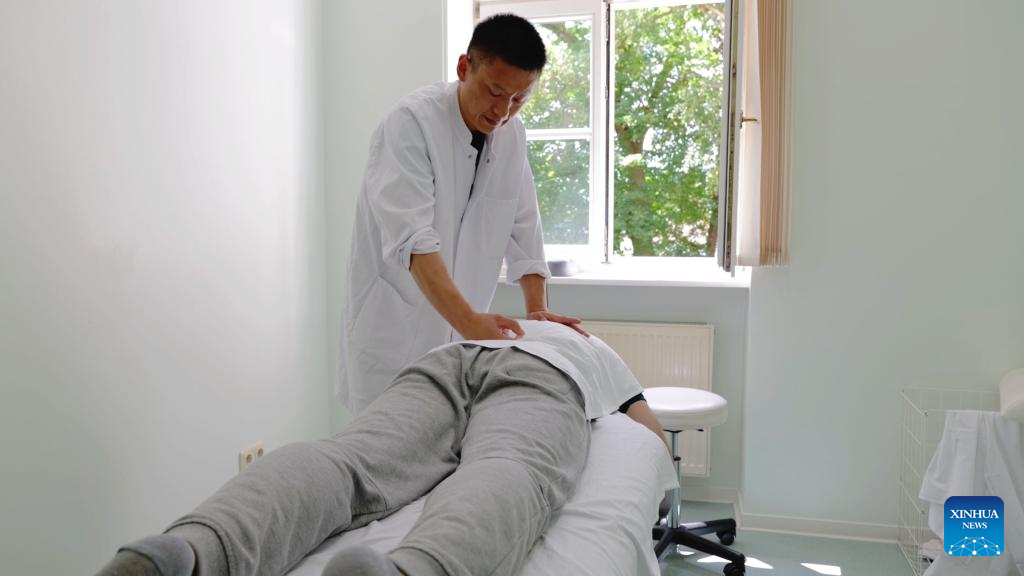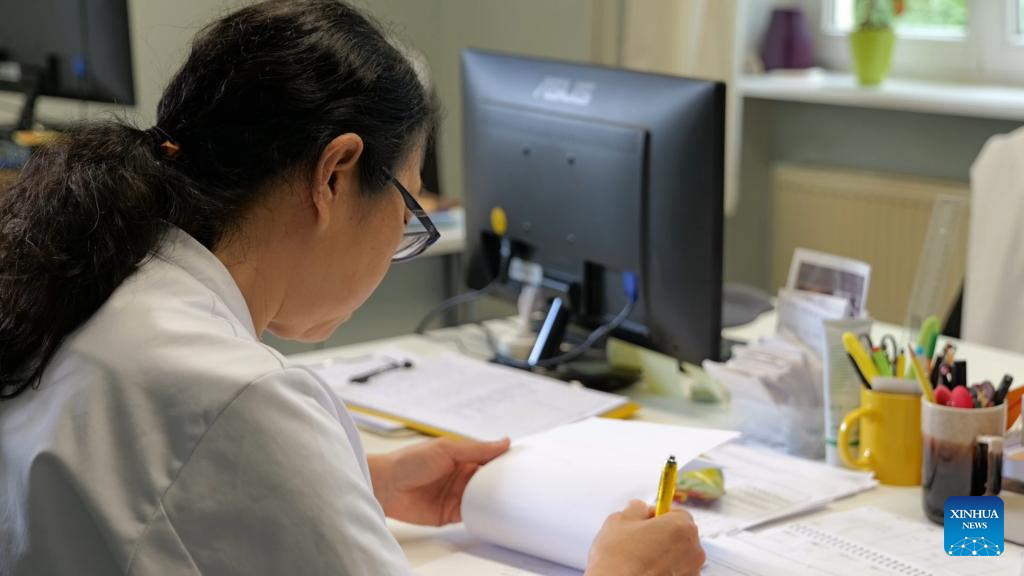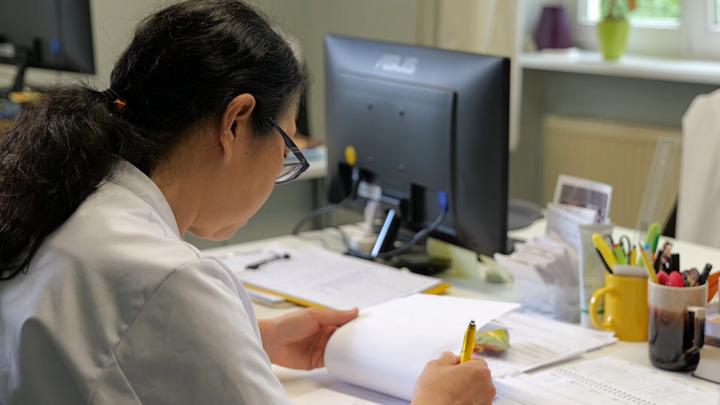A traditional Chinese medicine doctor from the Beijing University of Chinese Medicine Koetzting Hospital helps a patient with remedial massage in the town of Bad Koetzting in southeastern Germany, July 11, 2024.(Xinhua/Jia Jinming)
BERLIN, Aug. 18 (Xinhua) -- In the picturesque town of Bad Koetzting in southeastern Germany stands the Beijing University of Chinese Medicine Koetzting Hospital, the first traditional Chinese medicine (TCM) hospital in the country. Established 33 years ago, it remains the only TCM facility in Europe qualified to accept insurance payments and provide inpatient care.
Well-regarded across Europe, the hospital currently operates with 80 beds and treats over 1,000 patients annually. Most patients hail from various regions of Germany, but the hospital also attracts individuals from neighboring countries like Austria, Switzerland and Belgium.
"We primarily treat chronic patients with pain and mental issues resulting from brain-related conditions. They receive acupuncture treatments three times a week and daily herbal medicine. We have observed significant improvements in patient outcomes," said Steven Hegel, the German director of Koetzting hospital.
"Our hospital's key strength lies in its use of traditional Chinese medicine to restore harmony within the body's systems, which helps minimize reliance on allopathic medications. Many patients prefer to avoid drugs, such as painkillers or steroids, due to side effects like stomach discomfort. Traditional Chinese medicine provides effective alternatives," said Hegel, who is also the chief doctor of the hospital.
Traditional Chinese medicine has become an increasingly recognized component of Germany's complementary medicine sector. Notably, acupuncture treatments for conditions such as lower back pain and knee joint issues are now covered by Germany's public health insurance.
In recent years, the popularity of traditional Chinese medicine in Germany has grown significantly, with Chinese doctors playing a pivotal role in this acceptance.
Yang Likun, the Chinese administrative director at Koetzting Hospital, has worked with her team to introduce Chinese medicine to Germany. An acupuncturist herself, Yang treats hospitalized patients daily, striving to ensure effective outcomes.
"Trust in traditional Chinese medicine among German patients can only be established when its effectiveness is acknowledged, which in turn will enhance the promotion of both TCM and Chinese culture," she noted.
She recalled a case of a Serbian patient suffering from an acute flare-up of a chronic skin condition. "The patient had red spots, small blisters, thickened skin, joint pain, and itching that disrupted her sleep," Yang said.
After diagnosing the patient with damp-heat obstruction and liver-spleen deficiency, Yang administered acupuncture treatment, which led to significant improvement in both the patient's eczema and joint pain. "After witnessing the effectiveness of TCM treatment, the patient was very grateful and even introduced us to her family," Yang added.
"All our inpatients receive a combination of Chinese herbal medicine and acupuncture treatments. The herbal decoctions are prepared using traditional methods and the treatments are often complemented by massage and Qigong as needed," said Dai Jingzhang, a counselor at Koetzting Hospital and former deputy director of Beijing University of Chinese Medicine's Dongzhimen Hospital.
"The (Koetzting) hospital reported a 70-percent effectiveness rate from an average of four weeks of inpatient treatment, and we have received widespread praise from German patients," Dai noted.
From 2018 to 2023, the hospital successfully secured the "National International Cooperation Project in Traditional Chinese Medicine" for six consecutive years, marking a new phase in its development.
In addition to medical treatments, the hospital offers Taiji and Qigong classes, attracting over 1,200 participants in July alone. Dai noted that the hospital has become an important center in Germany for learning about Chinese medicine and experiencing traditional Chinese culture.
On Aug. 19, in celebration of the seventh Chinese Physician's Day, the Koetzting Hospital will host a lecture on "Chinese Medicine and Body Constitution" for patients and staff. This event aims to help the German audience better understand their body constitution through the lens of Chinese medicine.
"He who knows others is wise; he who knows himself is enlightened," Yang quoted Laozi, a philosopher from China's Spring and Autumn Period (BC 770-221), who founded the philosophical system of Taoism. She expressed her belief that understanding oneself is crucial for making informed decisions about health and illness.
"We aim to demonstrate that Chinese medicine can benefit health and to share the true, good, and beautiful aspects of Chinese culture. Chinese medicine, as a vital part of Chinese cultural outreach, plays an irreplaceable role," said Tang Minke, executive vice president of Beijing University of Chinese medicine.
A traditional Chinese medicine doctor from the Beijing University of Chinese Medicine Koetzting Hospital records patients' information in the town of Bad Koetzting in southeastern Germany, July 11, 2024.(Xinhua/Jia Jinming)






 A single purchase
A single purchase









